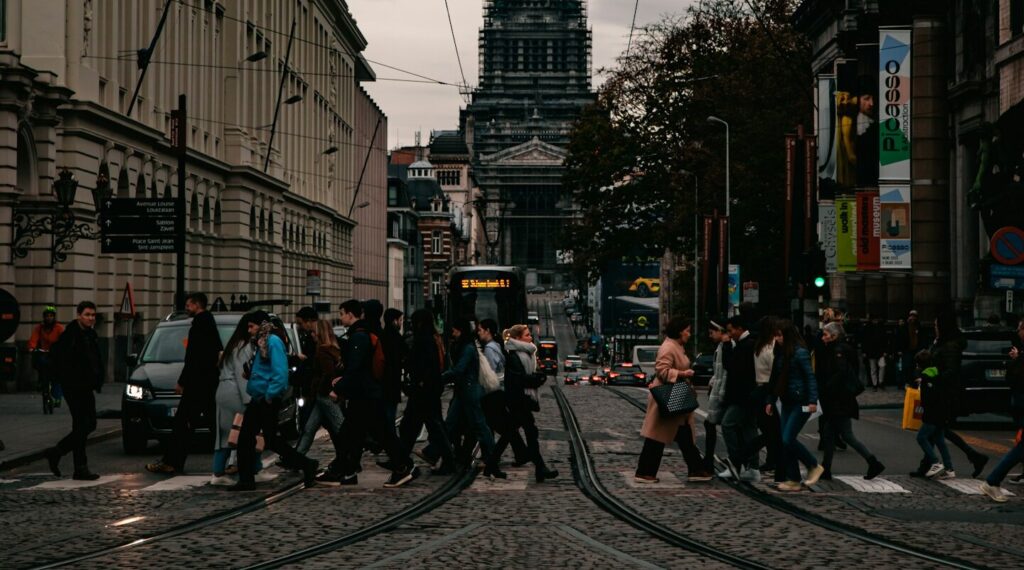Is Europe shifting the burden?

Earlier this year, Philea’s Democracy Network published the ‘Democracy Briefer‘ to help funders understand the root causes driving democratic decline in Europe. To reinforce our message, we are creating a series of opinion pieces where voices from the field help us connect each of the root causes in our report to recent developments, emerging opportunities, and new findings. In this first piece inspired by a conversation with the European Anti-Poverty Network, I reflect on whether the EU’s proposal for the Multiannual Financial Framework 2028–2034 sufficiently addresses ‘unmet needs’.
Shifting the burden
As a long-term recipient of government assistance in the 2010’s, I felt firsthand how each crisis (financial, Covid, energy) shifted social welfare policies from justice and basic needs to obligations and a responsibility to ‘unburden’ the system. I was increasingly forced to accept jobs unrelated to my skills and interests or risked losing all benefits. Conditions that would activate financial or housing assistance in the past now need to get significantly worse before the government steps in. In addition, new requirements like proof of language and integration skills were created to filter out ‘unwanted’ beneficiaries.
The EU’s proposed Multiannual Financial Framework 2028–2034 seems to continue this trend. While social investments are included, the focus on activation and education further shifts responsibility from the state as a guarantor of social justice to our individual responsibility to escape poverty. Prioritising security, defence and competitiveness over social investment, it echoes past crises where funding prioritises immediate threats at the expense of essential public services and the most vulnerable.
The invisible face of poverty
Housing prices in Europe have risen over 50% in the past decade and 1 in 10 citizens can no longer afford heating or a proper daily meal. One in five Europeans, roughly 90 million people, risk poverty and social exclusion. If, while reading this, images of disadvantaged neighbourhoods, the homeless near the train station or the people in the unemployment offices spring to mind, you are not alone. Political framing around this issue deliberately hides the invisible face of poverty that surrounds us every day: the ‘working poor’, earning wages yet remaining below the poverty line. The houseless that double up with relatives to cut costs. The ‘squeezed middle’ of low- and middle-income families scraping by to pay mortgages on outdated housing. Excluded from our view on poverty, Europe is leaving behind a widening group of citizens who are no longer eligible for support but whose struggles are no less real.
The further down the income brackets you go, the risk of poverty traps rises exponentially. Meanwhile, wealth accumulation at the top accelerates. A report by Oxfam estimated that 60% of wealth accumulation among the rich does not come from work or innovation, but from inheritance, monopoly power, cronyism and corruption. In today’s Europe, generational wealth seems increasingly favoured over personal merit.
This reality hit me hardest after I thought I escaped the poverty trap. More than five years after landing my first job, I was still denied access to adequate housing. My full-time contract meant nothing to landlords; most rental contracts required financially secure parents to co-sign, which I didn’t have. My humble but stable income did not matter to banks; to get a house loan I needed a 25k down payment. Money makes money, while its absence deepens the hole. The poverty trap was still there; it was just less visible.
Socio-economic inequality erodes democracy
People facing socio-economic exclusion are often politically sidelined, lacking access to the networks, resources and opportunities that enable civic participation. This connection between socio-economic status, inequality and democratic health is apparent in several recent elections. In Belgium’s first non-compulsory municipal elections, only half of 18-24 year-olds voted, with a significantly lower turnout among voters with a lower socio-economic status or dissatisfied with their economic situation. The cost of living and the economic situation were also the top two issues that motivated voters’ choices in the 2024 European elections and parties that exploited this frustration grabbed the biggest wins. In Portugal, young men voted five times more for the far right than girls, which the European Policy Centre partially attributed to job opportunities increasing among Portuguese women under 24 for decades, while they have been decreasing for men.
In many parts of Europe, socio-economic inequality runs parallel with gender and generational divisions, deepening the perception gap of democratic effectiveness and causing a weaker commitment to democratic norms especially among young men. By not prioritising systemic inequality and the eradication of poverty, European democracy is sowing the seeds of its own demise.
The same is true for philanthropy. If we do not factor in socio-economic inequality, it will persist in every change that we fund. Green transitions that ignore inequality risk disproportionately burdening low-income citizens. Investing in education, without addressing basic needs like housing, widens rather than narrows educational outcomes. Research agendas that skew towards high-tech solutions risk mainly benefiting elites instead of frontline communities. Funding arts and culture, gender or diversity without correcting for socio-economic inequality tends to amplify voices already in power. By unintentionally exacerbating inequality, we erode the trust of the very communities we aim to serve. The resulting public backlash has in turn been successfully co-opted by populist and anti-democratic parties eager to curb the influence of philanthropy.
Addressing our blind spots
Slowly but surely, philanthropy is waking up to the reality that Europe needs a social transformation rooted in equity and solidarity, where the ones whose lives are most impacted by political decision-making are not the ones least heard. Foundations with projects that service local communities are starting to incorporate this work and empowering its beneficiaries into their strategy for systemic change. Others are merging their previously separate work streams of equality and democracy into one complementary and justice focused strategy, using a bottom-up approach, rebuilding the social fabric and restoring the social contract on their home turf.
Our recently published ‘Framework for Sharing Power and Addressing Inequalities’ showcases many examples of how foundations are joining this movement. By making 2025 the year of equality and creating an equality soundboard and a new framework, Philea has taken its first steps in addressing some of our own blind spots. But there is lots of work to be done. While equality is one of our three main pillars, and many of our networks have applied poverty and equity as a lens in some of our activities, there is to date no dedicated platform within Philea to champion socio-economic justice. If European leaders fail to prioritise unmet needs, I hope philanthropy can rise to the occasion instead. Foundations already working on socio-economic justice: I hope you’ll reach out. Let’s build this platform together!
Authors

